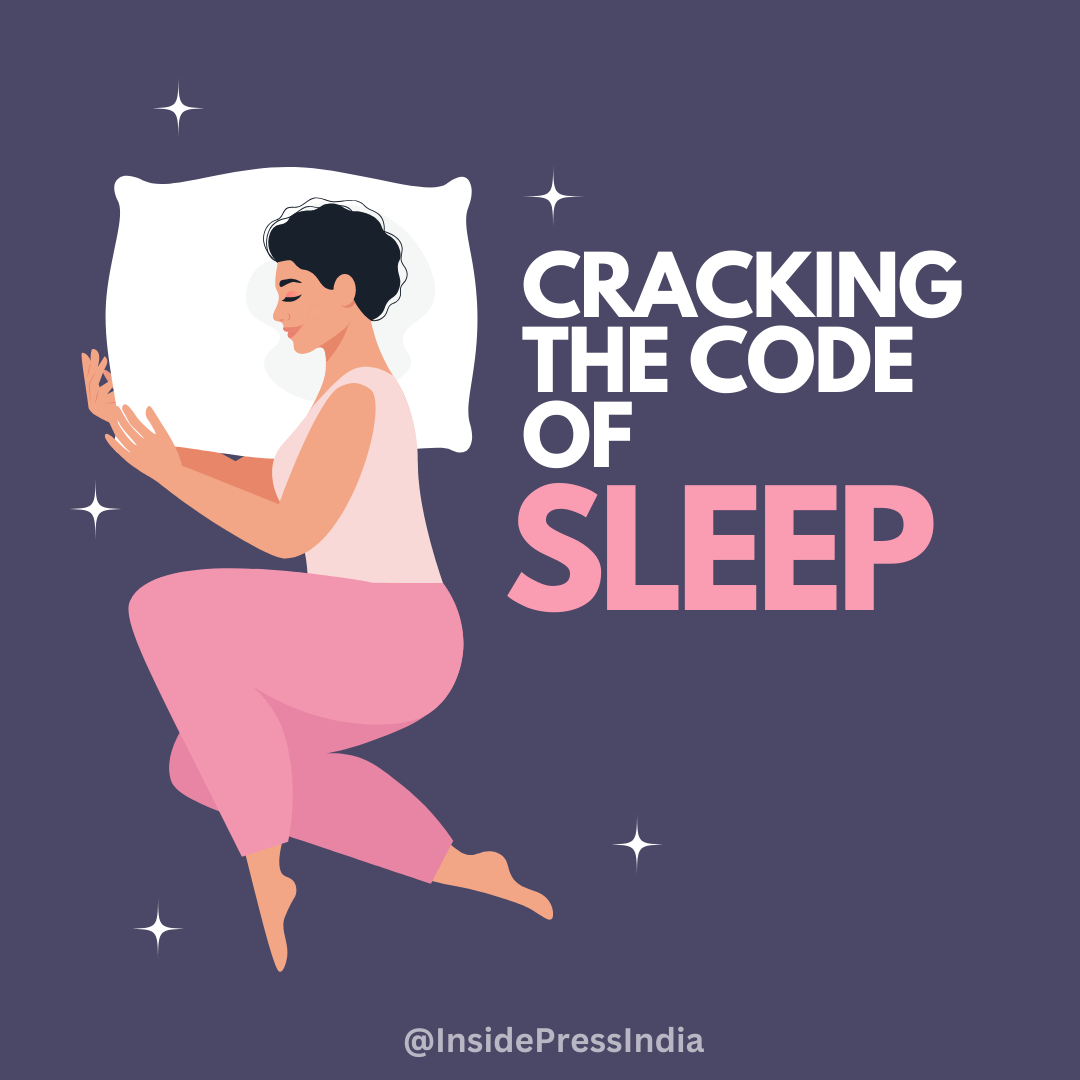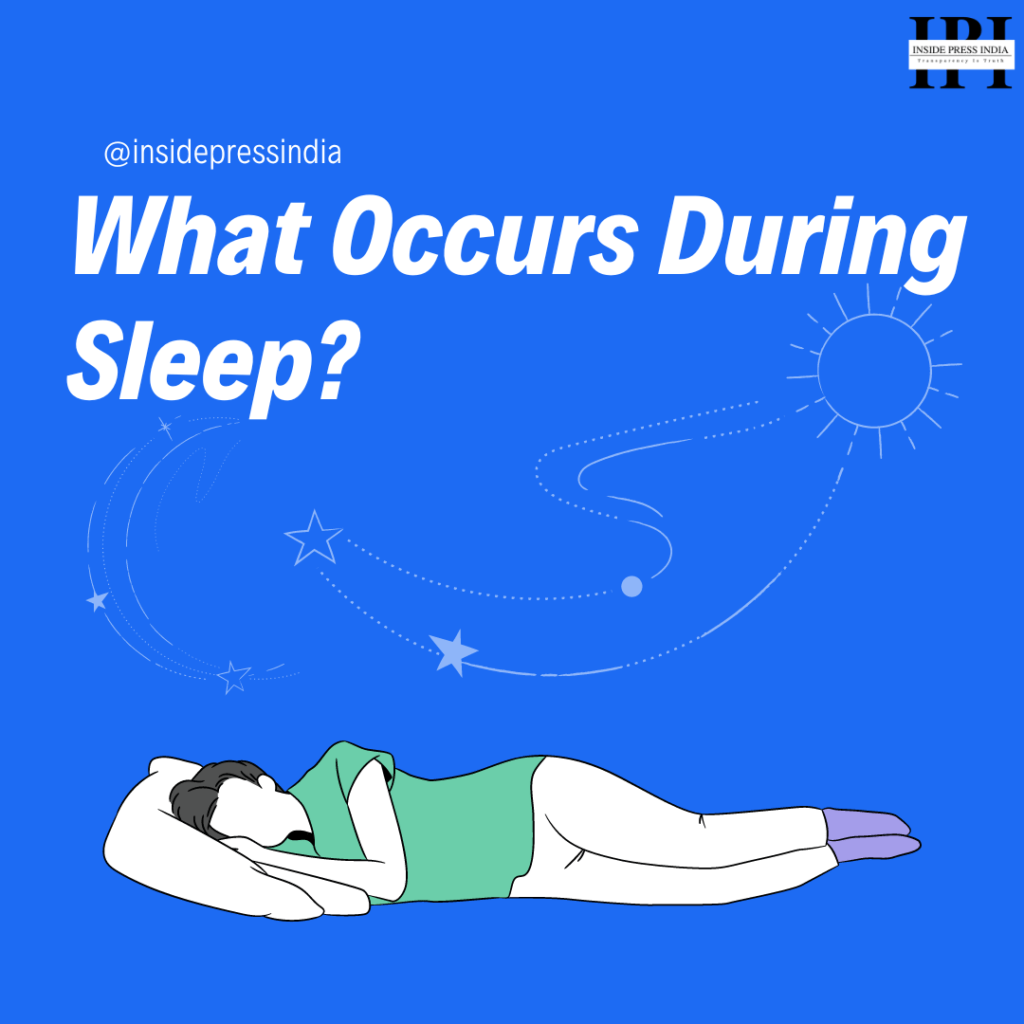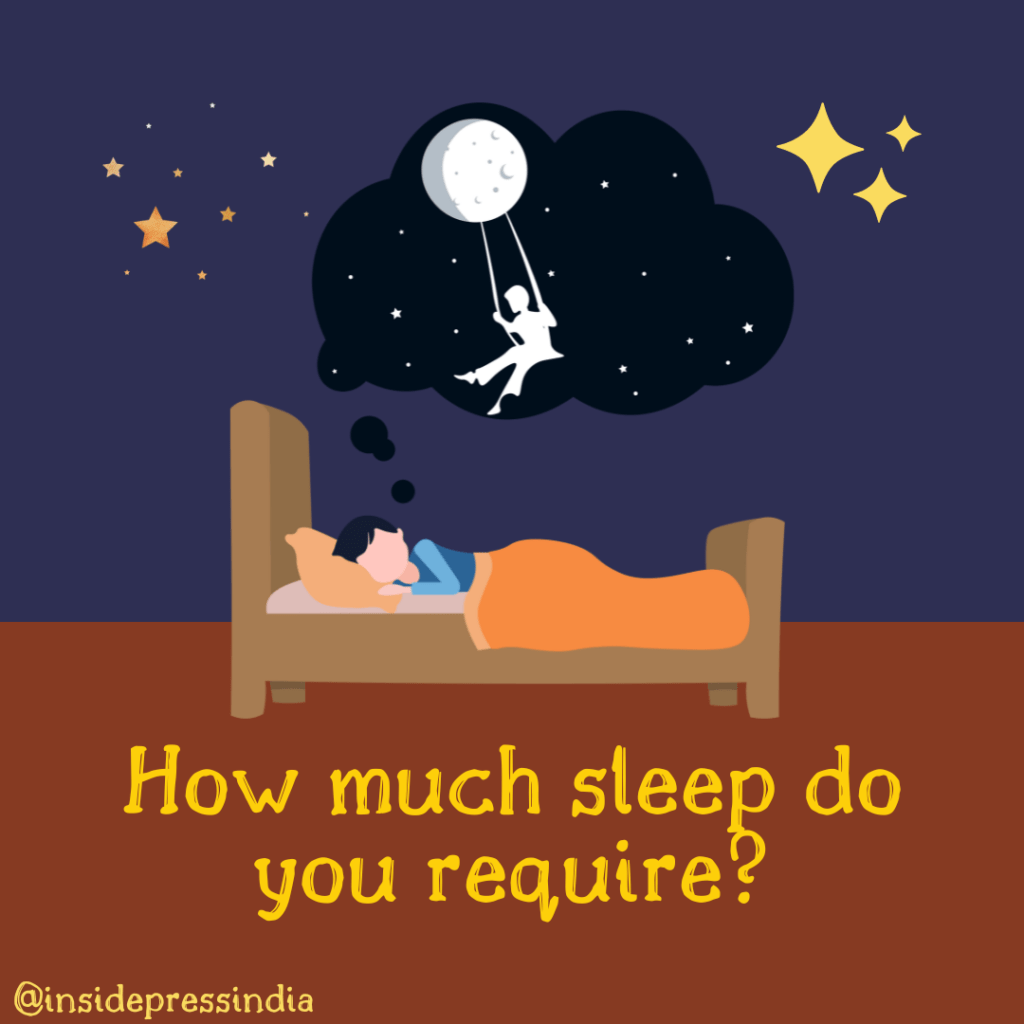
Cracking the Code of Sleep: Revealing its Purpose and Vital Role in Health
Cracking the Code of Sleep: Revealing its Purpose and Vital Role in Health
Sleep is an essential aspect of our lives, necessary for maintaining good health and well-being. Just as we require food and water to survive, sleep is equally vital. Approximately one-third of our time is spent sleeping, highlighting its significance in our daily routines.
During sleep, various biological activities take place, serving crucial functions for our body and mind. Firstly, the brain undergoes processes like storing new information and eliminating harmful waste products, contributing to cognitive function and mental clarity. Additionally, nerve cells engage in communication and reorganization, which supports overall brain health and functioning.
Moreover, sleep facilitates the repair of bodily cells, restoration of energy levels, and the release of essential molecules such as hormones and proteins. These processes are fundamental for maintaining overall health and ensuring that our bodies function optimally.
Failure to obtain sufficient sleep can have detrimental effects on our health and well-being. Without proper rest, these vital biological processes are disrupted, leading to impaired cognitive function, a weakened immune system, and increased susceptibility to various health issues.
In summary, sleep is a fundamental aspect of human life, allowing our bodies and minds to undergo essential processes that are vital for overall health and functioning. Understanding the importance of sleep underscores the need to prioritize adequate rest for optimal well-being
What is the reason for Sleep?
Despite ongoing research, there remains a considerable amount of mystery surrounding the purpose of sleep. While no single explanation suffices, it’s widely acknowledged that sleep serves various biological functions, reflecting its necessity for overall health.
Scientists have identified several significant ways in which sleep benefits the body. These include the facilitation of cognitive processes, restoration of bodily functions, and regulation of metabolic activities. While definitive answers may still elude us, ongoing scientific exploration continues to shed light on the multifaceted role of sleep in maintaining well-being
Energy Preservation
As per the theory of energy conservation, sleep serves the purpose of conserving energy. During sleep, our metabolic rate decreases, enabling us to lower our caloric requirements and operate at a reduced level of activity.
Studies indicate that humans can achieve a significant energy savings of up to 35 percent throughout the day by getting 8 hours of sleep, compared to staying awake constantly.
This theory proposes that one of the primary functions of sleep is to decrease energy expenditure during periods, both day and night, when searching for food would be inconvenient and less effective.
Cellular rejuvenation
According to the restorative theory of sleep, the body requires sleep to undergo restoration processes. This theory suggests that during sleep, cells undergo repair and regeneration, contributing to overall bodily rejuvenation. Several key processes occur during sleep to support this idea:
- Muscle Repair: Sleep provides an opportunity for muscles to repair any damage incurred during the day’s activities. This restoration process aids in maintaining muscle strength and functionality.
- Protein Synthesis: Sleep is essential for facilitating protein synthesis, a crucial mechanism for building and repairing tissues throughout the body. This process helps in maintaining the structural integrity of various bodily tissues.
- Tissue Growth: Sleep plays a vital role in promoting tissue growth, allowing for the renewal and regeneration of cells. This contributes to the overall maintenance and repair of bodily structures.
- Hormone Release: Various hormones are released during sleep, which are involved in regulating essential bodily functions. These hormones play a role in processes such as growth, metabolism, and immune function, supporting overall health and well-being.
In summary, the restorative theory emphasizes the importance of sleep in enabling the body to undergo essential repair and regeneration processes, which are vital for maintaining overall health and functionality.
Brain function
According to the brain plasticity theory, sleep plays a crucial role in maintaining optimal brain function. Specifically, it enables the reorganization of neurons or nerve cells within the brain.
During sleep, the brain’s glymphatic system, responsible for waste clearance, works to eliminate toxic byproducts accumulated in the central nervous system throughout the day. This process helps in clearing out waste from the brain, facilitating its efficient functioning upon awakening.
Research indicates that sleep is essential for memory consolidation, whereby short-term memories are transformed into long-term memories. Additionally, sleep aids in the removal or forgetting of unnecessary information, preventing the nervous system from becoming cluttered.
Sleep impacts various aspects of brain function, including:
- Learning: Sleep is crucial for the encoding and consolidation of new information, enhancing the learning process.
- Memory: Sleep plays a vital role in memory consolidation, allowing for the retention of learned information.
- Problem-solving skills: Adequate sleep improves cognitive abilities, including problem-solving skills and critical thinking.
- Creativity: Sleep fosters creativity by facilitating neural connections and processing information in novel ways.
- Decision-making: Quality sleep enhances decision-making abilities by promoting clarity and sound judgment.
- Focus: Adequate rest improves attention span and focus, enabling better concentration on tasks.
In summary, sleep is integral to various aspects of brain function, including learning, memory, problem-solving, creativity, decision-making, and focus, highlighting its essential role in overall cognitive health and performance.
Heart health
While the precise reasons remain uncertain, researchers believe that sleep plays a crucial role in promoting heart health. This notion arises from the observed correlation between heart disease and inadequate sleep patterns.
According to the Centers for Disease Control and Prevention (CDC), the average adult should aim for about 7 hours of sleep per night. Consistently getting less sleep than this recommended duration can contribute to various health issues, many of which can negatively impact heart health.
Insufficient sleep is linked to several risk factors associated with heart disease, including:
- High blood pressure: Not getting enough sleep can lead to elevated blood pressure levels, increasing the risk of heart problems.
- Increased sympathetic nervous system activity: Poor sleep habits may result in heightened activity of the sympathetic nervous system, which can negatively affect heart function.
- Increased inflammation: Inadequate sleep has been associated with increased levels of inflammation in the body, which can contribute to heart disease.
- Elevated cortisol levels: Lack of sleep can lead to higher cortisol levels, a stress hormone that, when chronically elevated, can adversely affect heart health.
- Weight gain: Poor sleep patterns are often linked to weight gain, which is a significant risk factor for heart disease.
- Insulin resistance: Sleep deprivation can contribute to insulin resistance, a condition where cells fail to respond properly to insulin, increasing the risk of diabetes and heart disease.
In summary, maintaining adequate sleep is crucial for heart health, as insufficient sleep can lead to various risk factors associated with heart disease. Prioritizing good sleep hygiene and ensuring sufficient rest can play a significant role in supporting overall cardiovascular well-being.
.
What Occurs During Sleep?

When you sleep, your body undergoes various physiological processes that are essential for overall health and well-being. These processes occur in different stages throughout the sleep cycle, which typically includes stages of non-rapid eye movement (NREM) sleep and rapid eye movement (REM) sleep.
During NREM sleep, your body relaxes, and your brain waves slow down. This stage is crucial for physical restoration and repair. It allows your muscles to relax, your blood pressure to decrease, and your breathing to become slower and more regular. Additionally, during NREM sleep, your body releases growth hormones, which aid in tissue repair and growth.
As you transition into REM sleep, your brain becomes more active, and your eyes move rapidly behind closed eyelids. This stage is essential for cognitive restoration and emotional processing. REM sleep is associated with dreaming, memory consolidation, and learning.
It is believed to play a crucial role in processing and integrating information from the day, helping to solidify memories and promote problem-solving abilities.
Throughout the night, you cycle through multiple rounds of NREM and REM sleep, each lasting for varying durations. This cyclical pattern of sleep allows your body and mind to undergo essential processes necessary for maintaining optimal health, cognitive function, and emotional well-being
How much sleep do you require?

The amount of sleep recommended varies depending on your age, and it can also differ from person to person. However, guidelines from the Centers for Disease Control and Prevention (CDC) provide the following recommended durations based on age:
- Birth to 3 months: Babies in this age range typically need 14 to 17 hours of sleep per day.
- 4 to 12 months: Infants aged 4 to 12 months require around 12 to 16 hours of sleep within a 24-hour period, including naps.
- 1 to 2 years: Toddlers aged 1 to 2 years should aim for approximately 11 to 14 hours of sleep per 24 hours, including naps.
- 3 to 5 years: Preschoolers aged 3 to 5 years need about 10 to 13 hours of sleep per 24 hours, including naps.
- 6 to 12 years: Children aged 6 to 12 years typically require 9 to 12 hours of sleep per night.
- 13 to 18 years: Teenagers aged 13 to 18 years should aim for 8 to 10 hours of sleep per night.
- 18 to 60 years: Adults aged 18 to 60 years should strive for at least 7 or more hours of sleep per night.
- 61 to 64 years: Older adults in the age range of 61 to 64 years should aim for 7 to 9 hours of sleep per night.
- 65 years and older: Individuals aged 65 years and older are recommended to get 7 to 8 hours of sleep per night.
These guidelines serve as general recommendations, and individual sleep needs may vary based on factors such as lifestyle, overall health, and personal preferences. It’s essential to prioritize adequate sleep duration to support overall health and well-being at every stage of life.
The Effects of Sleep Deprivation on Your Body and Mind
Insufficient sleep can significantly impair your body’s ability to function optimally, leading to various health complications. Sleep deprivation has been linked to chronic health issues affecting vital organs such as the heart, kidneys, blood, brain, and overall mental well-being.
Moreover, inadequate sleep is associated with an elevated risk of injury for both adults and children. For instance, drowsiness while driving can contribute to severe car accidents and fatalities. In older adults, poor sleep quality is correlated with a heightened risk of falls and fractures.
Some specific consequences of sleep deprivation include:
- Mood swings: Lack of sleep can lead to changes in mood, making individuals more prone to irritability and mood fluctuations.
- Anxiety and depression: Sleep deficiency is closely associated with an increased risk of developing anxiety and depression.
- Impaired memory: Poor sleep quality can negatively impact memory retention and cognitive function, leading to memory lapses and forgetfulness.
- Decreased focus and concentration: Insufficient sleep can impair one’s ability to concentrate and maintain focus on tasks.
- Impaired motor function: Sleep deprivation can affect coordination and motor skills, leading to decreased physical performance.
- Fatigue: Individuals experiencing sleep deprivation often suffer from persistent fatigue and a lack of energy.
- Weakened immune system: Inadequate sleep compromises the immune system’s ability to defend against illnesses and infections.
- Weight gain: Poor sleep habits have been linked to weight gain and obesity due to disruptions in hormonal regulation.
- High blood pressure: Sleep deficiency can contribute to elevated blood pressure levels, increasing the risk of hypertension.
- Insulin resistance: Lack of sleep is associated with insulin resistance, a condition that predisposes individuals to type 2 diabetes.
- Chronic diseases: Sleep deprivation is a known risk factor for chronic conditions like diabetes and heart disease.
- Increased risk of early mortality: Prolonged sleep deprivation is linked to a higher likelihood of premature death.
Overall, prioritizing adequate sleep is crucial for maintaining physical health, mental well-being, and overall quality of life.
Why are young Indians falling victim to heart attacks? READ HERE
Join IPI membership and get exclusive benefits for free- JOIN NOW
Subscribe INSIDE PRESS INDIA for more

Cracking the Code of Sleep: Revealing its Purpose and Vital Role in HealthCracking the Code of Sleep: Revealing its Purpose and Vital Role in HealthCracking the Code of Sleep: Revealing its Purpose and Vital Role in HealthCracking the Code of Sleep: Revealing its Purpose and Vital Role in HealthCracking the Code of Sleep: Revealing its Purpose and Vital Role in HealthCracking the Code of Sleep: Revealing its Purpose and Vital Role in HealthCracking the Code of Sleep: Revealing its Purpose and Vital Role in HealthCracking the Code of Sleep: Revealing its Purpose and Vital Role in HealthCracking the Code of Sleep: Revealing its Purpose and Vital Role in HealthCracking the Code of Sleep: Revealing its Purpose and Vital Role in HealthCracking the Code of Sleep: Revealing its Purpose and Vital Role in HealthCracking the Code of Sleep: Revealing its Purpose and Vital Role in HealthCracking the Code of Sleep: Revealing its Purpose and Vital Role in HealthCracking the Code of Sleep: Revealing its Purpose and Vital Role in HealthCracking the Code of Sleep: Revealing its Purpose and Vital Role in HealthCracking the Code of Sleep: Revealing its Purpose and Vital Role in HealthCracking the Code of Sleep: Revealing its Purpose and Vital Role in HealthCracking the Code of Sleep: Revealing its Purpose and Vital Role in HealthCracking the Code of Sleep: Revealing its Purpose and Vital Role in HealthCracking the Code of Sleep: Revealing its Purpose and Vital Role in HealthCracking the Code of Sleep: Revealing its Purpose and Vital Role in HealthCracking the Code of Sleep: Revealing its Purpose and Vital Role in HealthCracking the Code of Sleep: Revealing its Purpose and Vital Role in HealthCracking the Code of Sleep: Revealing its Purpose and Vital Role in Health








[…] Cracking the Code of Sleep: Revealing its Purpose and Vital Role in Health READ HERE […]